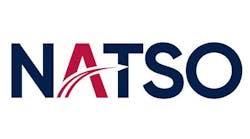Terrorist activity has helped push diesel prices up, but even if crude prices stabilize, refining capacity remains a log jam to the national diesel supply, analysts say.
According to The Wall Street Journal Online, light crude traded for $41.38 a barrel over Friday’s close on the New York Mercantile Exchange. The price reflects a $1.50 hike during after-hours electronic trading after terrorist attacks in Saudi Arabia prompted traders to fear the security of the oil supply in the world’s largest exporter.
The attacks came after Saudi Arabia announced plans last week to boost production capacity to 11.3 million barrels a day, up from its current capacity of 10.5 million, Dow Jones newswires said. In addition, Saudi Arabia has been lobbying OPEC to raise its official output maximum.
Despite the efforts of Saudi Arabia to bring down crude costs, the threat of terrorism has created a “risk premium,” according to analyst Chris Brady of Commercial Motor Vehicle Consulting.
“The immediate effect is that there’s a risk of a supply disruption in the Middle East because of terrorism,” Brady told Fleet Owner, citing estimates that it adds between four to seven dollars per barrel.
Diesel prices have historically had a proportional relationship with crude costs, Brady added.
“If we see crude oil prices go down, there will be a decline in diesel, but it will not be as large in relation,” Brady said. “If we see crude prices change 20%, for example, we may see a 12% impact on diesel.”
Bob Costello, economist of the American Trucking Associations (ATA), told Fleet Owner that crude accounts for about half the cost of the diesel price. The “security premium” accounts for five to 10 dollars per barrel, although it is difficult to know for certain, Costello said.
Although the steps Saudi Arabia is taking to increase crude supplies is a positive step, Costello is skeptical this will make any dramatic improvement in diesel prices. He said there is still a bottleneck in diesel supply: refining.
“Even if OPEC were somehow able to dump all the crude we need onto our shores, we don’t have the refining capacity to deal with it,” Costello said. “In reality it [crude supplies] may only have a marginal impact.”


